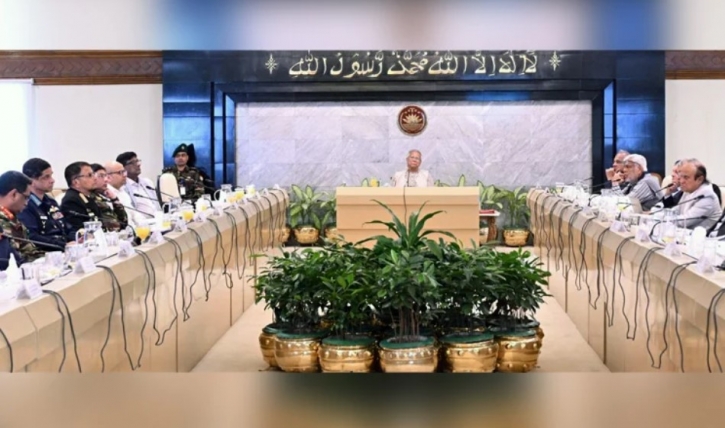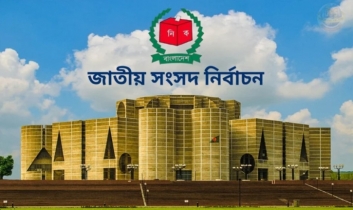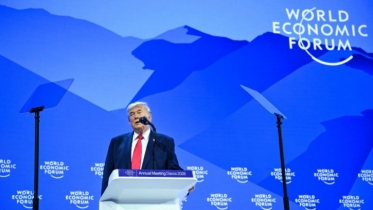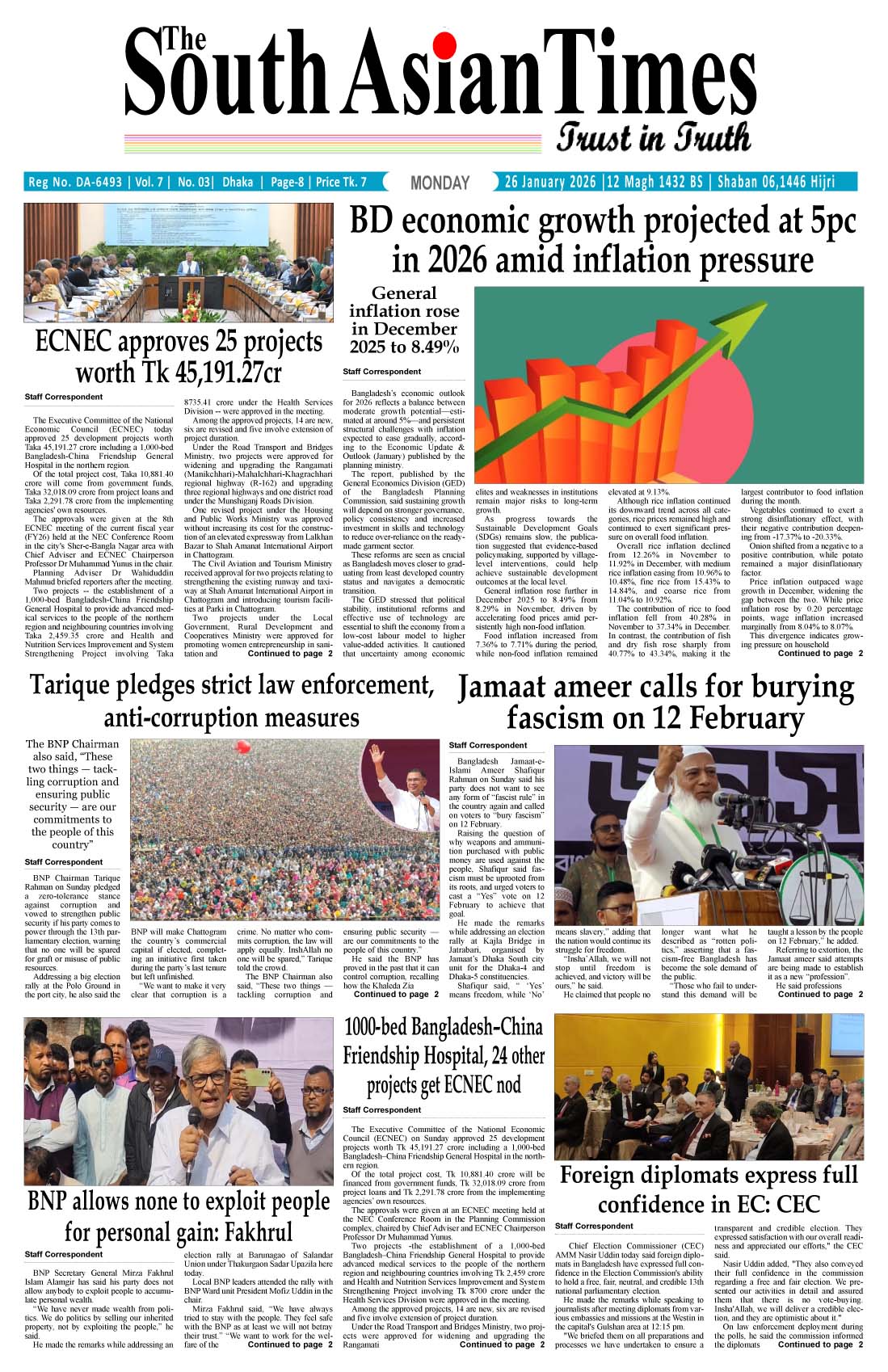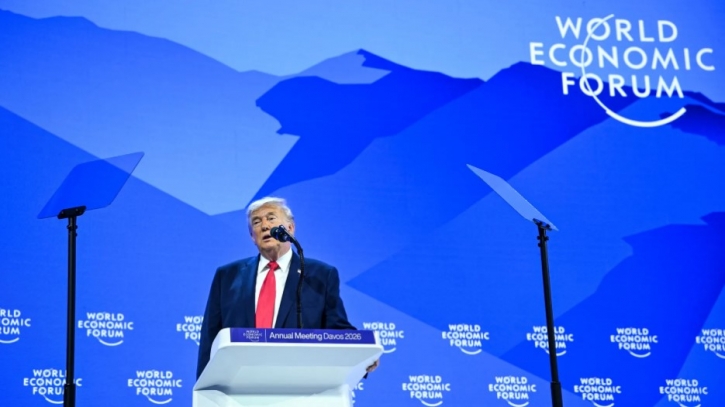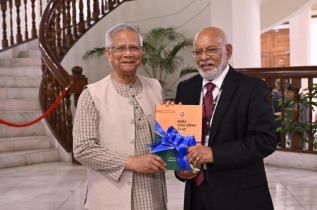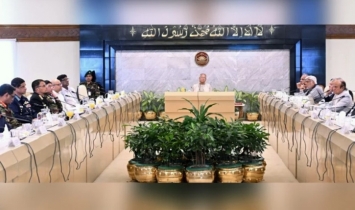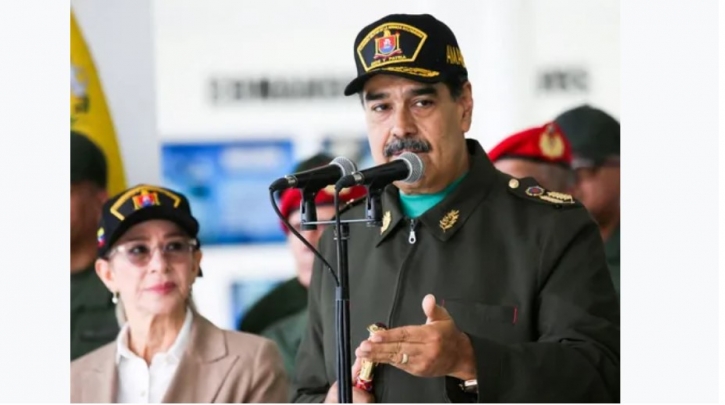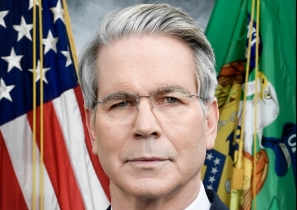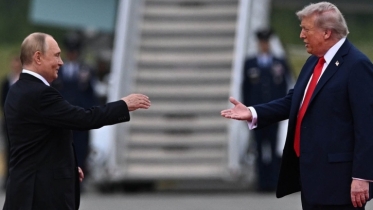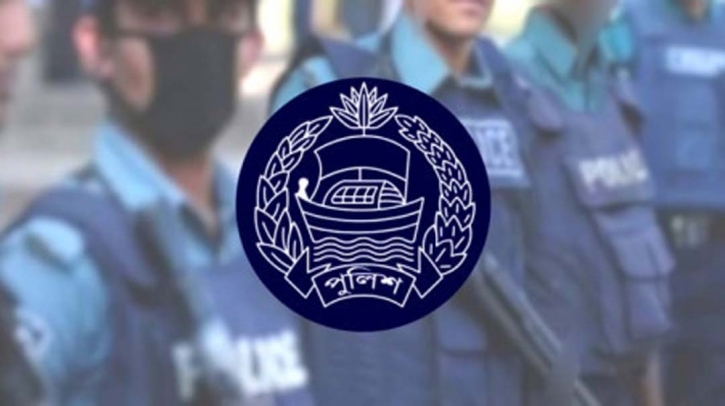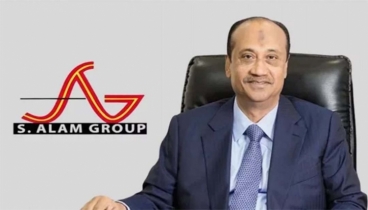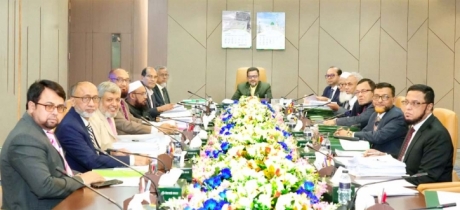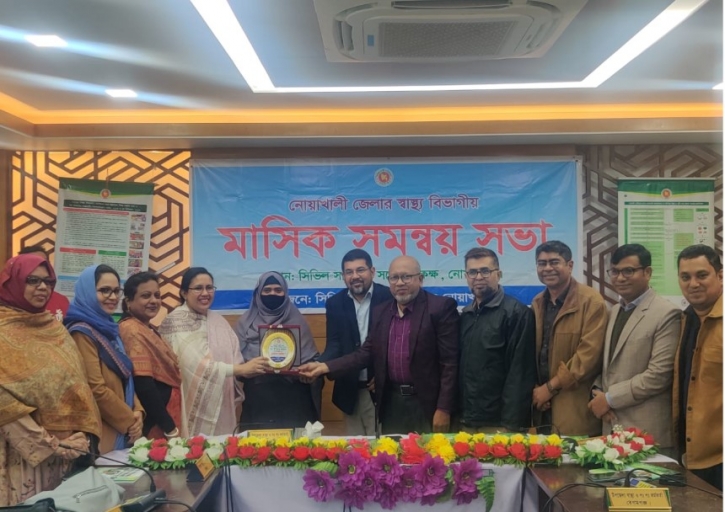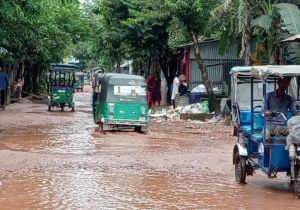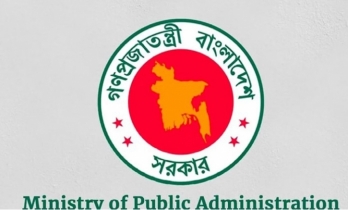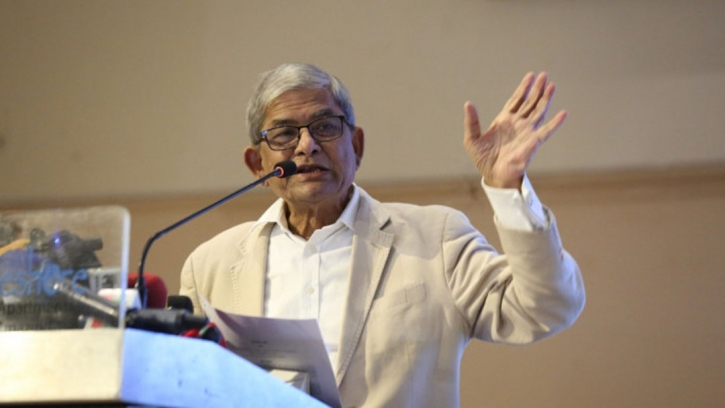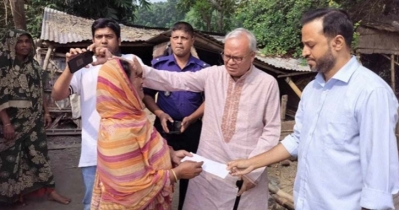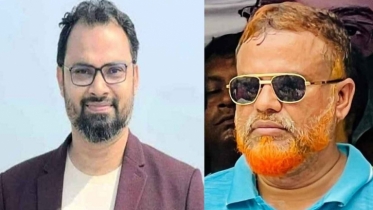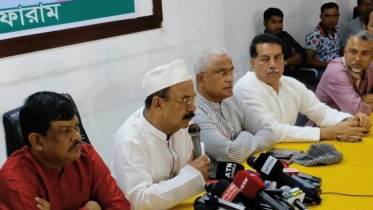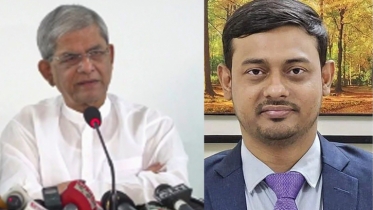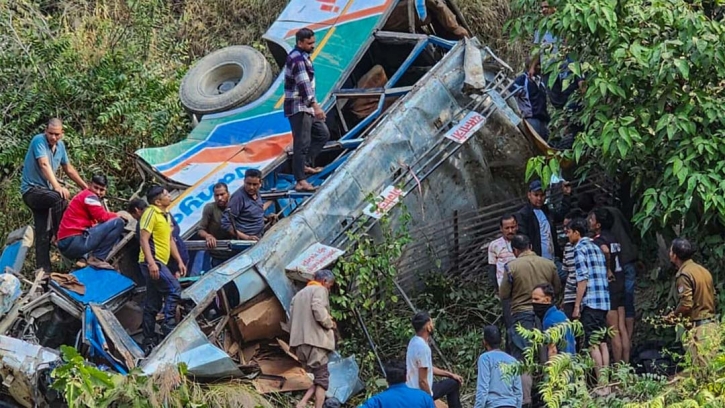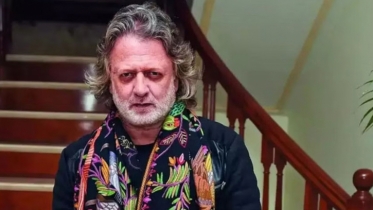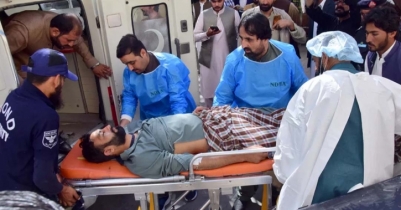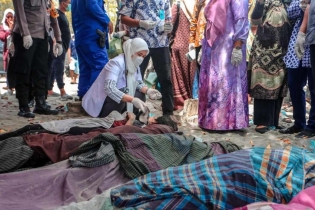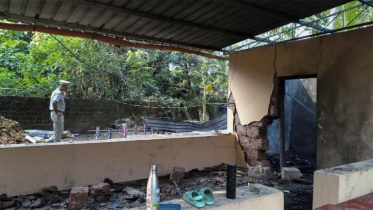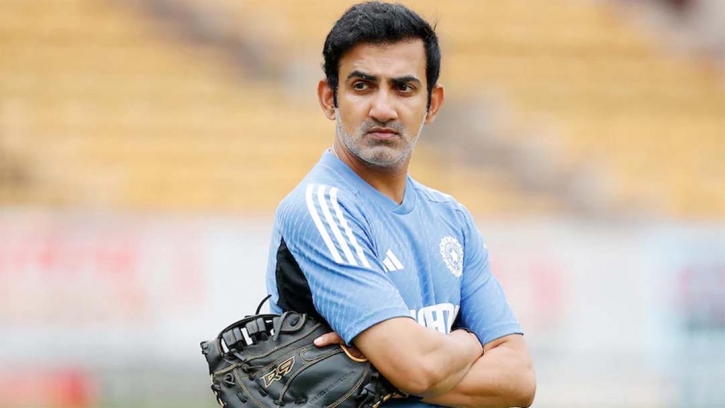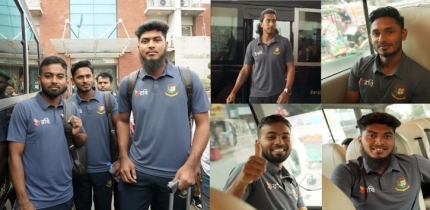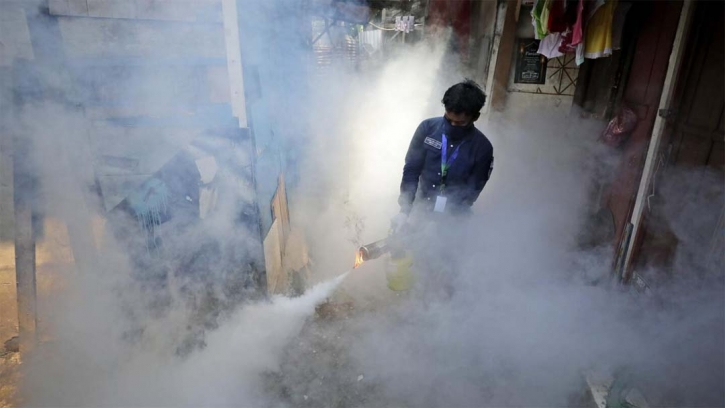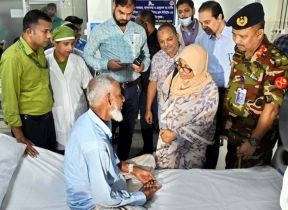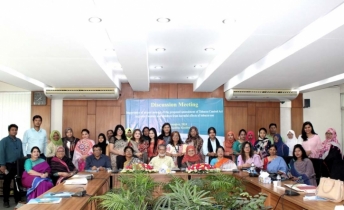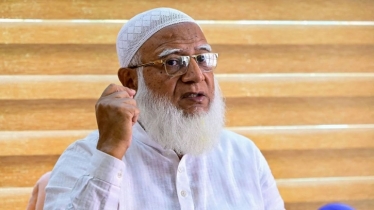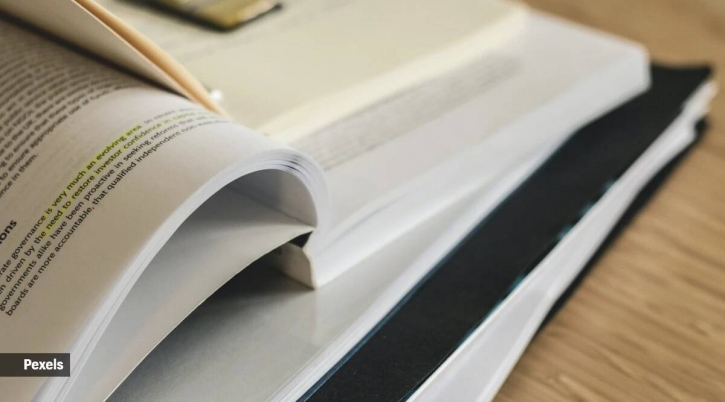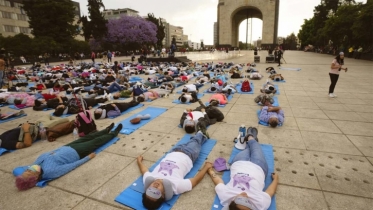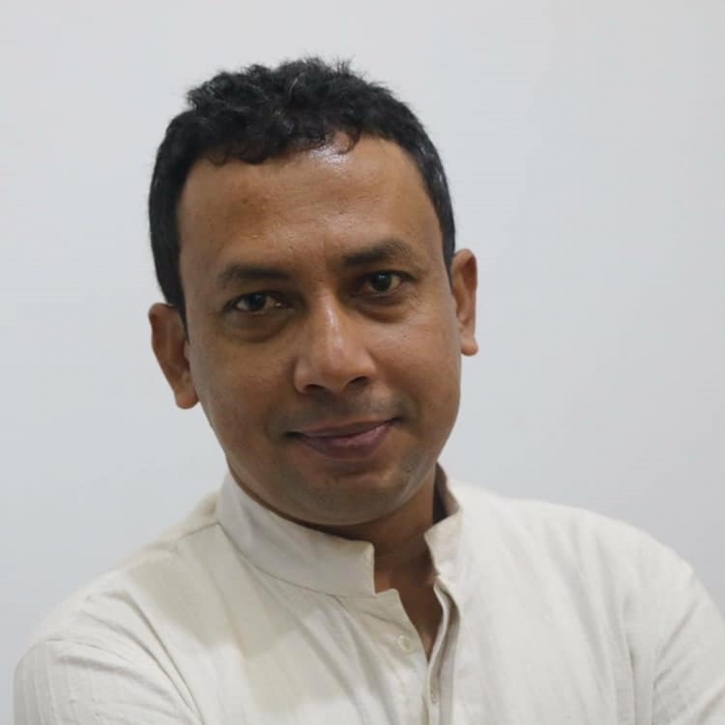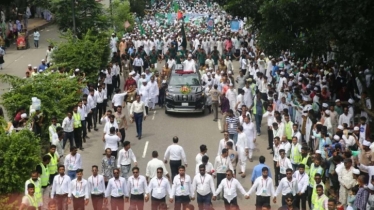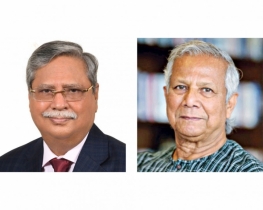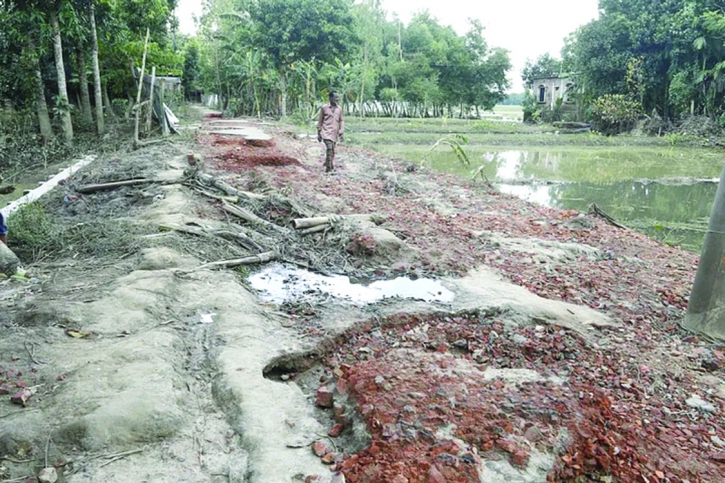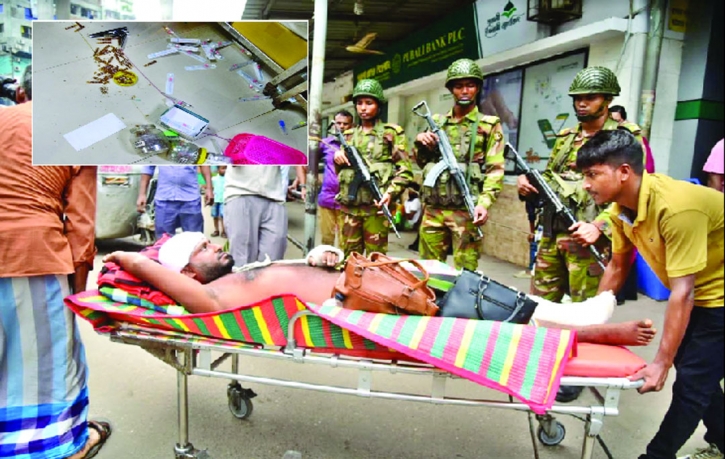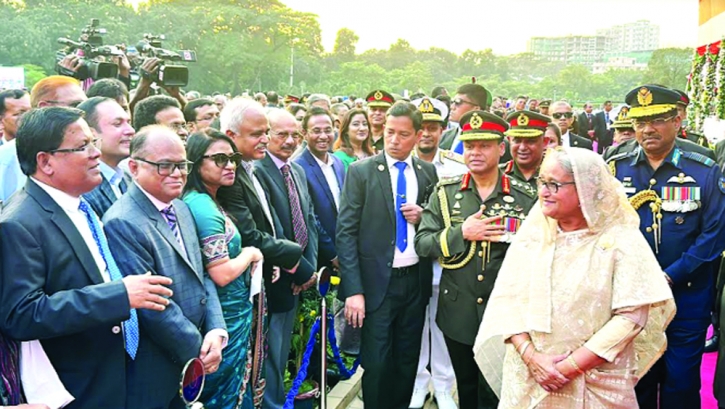Chief Adviser Professor Muhammad Yunus today stressed on holding the forthcoming general elections slated for February 12 in a manner that it can set a standard for polls in the country in future.
"The 2026 polls should be such an election that will set a standard for future elections," he said.
The Chief Adviser made the remarks while chairing a high-level meeting on the overall law and order situation at his office in the city`s Tejgaon area ahead of the upcoming 13th Jatiya Sangsad (JS) election and the referendum on the implementation of the July National Charter.
Later, Chief Adviser`s Press Secretary Shafiqul Alam briefed the media about the meeting at the Foreign Service Academy here this afternoon.
At the meeting, Prof Yunus said, "Our task is actually to assist the Election Commission (EC). This is a major challenge for the nation, which we must take on, and we must complete this huge task and establish it as a historic achievement."
He said that utmost attention must be paid so that there is no shortage of anything on election day, adding that there must be no lapses anywhere on February 12.
"Our step-by-step tests have started ahead of the elections. Starting from today, the final test will be held on February 12," the Chief Adviser said, adding, the directives of the EC are now the highest directives, and everyone must work together in accordance with the EC`s instructions.
Prof Yunus said Ministry of Home Affairs will remain in the central role of the law and order command.
Noting that there are various challenges now, including the challenge of multiple technologies, he said, “We will use body-worn cameras and CCTV cameras in this election while everything will be monitored from a central control room”.
The Chief Adviser stressed that there must be no lack of coordination among the forces while performing their duties.
He noted that a large number of domestic and foreign journalists will cover the election while domestic and foreign observers are showing great interest, saying, “They have taken the matter very seriously, and we also must be super serious about this”.
“We must remain prepared for everything. Given the current situation and the preparations in place, it is possible to hold a good election,” Prof Yunus said.
All those contesting in the election are maintaining a positive attitude and mutual harmony, he said, expressing hope that none of them would deviate from this attitude.
Home Affairs Adviser Lt Gen (retd) Md Jahangir Alam Chowdhury, Power, Energy and Mineral Resources Adviser Fouzul Kabir Khan, Special Assistant to the Chief Adviser on Defence and National Solidarity Development Lt Gen (retd) Abdul Hafiz, National Security Adviser Dr Khalilur Rahman, Special Assistant to the Chief Adviser for Posts, Telecommunications and Information Technology Faiz Ahmad Taiyeb, Cabinet Secretary Dr Sheikh Abdur Rashid, Chief of Army Staff General Waker-Uz-Zaman, Chief of Naval Staff Admiral M Nazmul Hassan, Chief of Air Staff Air Chief Marshal Hasan Mahmood Khan, Chief Adviser’s Principal Secretary M Siraz Uddin Miah, Home Affairs Secretary Nasimul Ghani, EC’s Senior Secretary Akhtar Ahmed, Inspector General of Police (IGP) Baharul Alam and chiefs of Border Guard Bangladesh (BGB), Bangladesh Ansar and VDP, Coast Guard and Rapid Action Battalion (RAB) and representatives from different intelligence agencies were present at the meeting.
Speaking at the meeting, EC Secretary Akhtar Ahmed said that 51 out of the 59 registered political parties are participating in this election.
He said representatives from 26 countries have been invited to observe the election, adding that it is expected that the European Union will send an observation team of around 300 members while 56 of their representatives are already in Bangladesh.
Two of their (EU team) representatives have observed the nomination appeal process, the EC secretary said.
He said that candidates will be allowed to campaign from midnight tonight until 7:30 am on February 10.
Stating that distortion of information in cyberspace is a major challenge in this election, Akhtar Ahmed said that counting party-symbol ballots, referendum ballots, and postal ballots will require some additional time.
To prevent misinformation or rumours around this issue, he stressed that the media should play a responsible role.
Power, Energy and Mineral Resources Adviser Fouzul Kabir Khan informed the meeting that his ministry is working to ensure uninterrupted electricity supply on election day across the country.
Special Assistant to the Chief Adviser for Posts, Telecommunications and Information Technology Faiz Ahmad Taiyeb said his ministry is working to ensure uninterrupted mobile network and internet services at all polling centres on the election day.
Chief of Army Staff General Waker-Uz-Zaman informed the meeting that during the mass uprising in August 2024, a total of 3,619 weapons were looted from police stations across the country.
Of these, 2,259 weapons have been recovered so far, which is 62.4 percent of the looted weapons, he said.
The Army Chief further said that 456,418 rounds of ammunition were looted from police stations during the same period, of which 237,100 rounds have already been recovered, amounting to 52 percent.
Waker-Uz-Zaman said that to ensure public confidence during the election, the forces are taking various measures through mutual consultation, adding that if these are effectively implemented in the coming days, it will be possible to present the nation with a peaceful election.
Bangladesh Ansar and VDP Director General Major General Abdul Motaleb Sazzad Mahmud said that in this election, armed Ansar members will be stationed inside polling centres to ensure the security of Presiding Officers.
As a result, no one will be able to arbitrarily oust the polling agents of rival candidates from the centres, and no illegal activities will be allowed inside the polling centres, he added.
Home Affairs Adviser Lieutenant General (Retd) Md Jahangir Alam Chowdhury said that members of the armed forces will be considered law enforcement personnel during the election, and therefore, if necessary, they will be able to enter the premises of polling centres.
Home Affairs Secretary Nasimul Ghani said that body-worn cameras will reach the local level within the next five days, adding, members of police and other forces will use drones where necessary.
Members of all forces will be deployed four days before the vote, and they will remain in the field for seven days after the election, he said.
"From today, multiple teams led by Joint Secretaries of the Ministry of Home Affairs will monitor and record all election-related field-level information around the clock," Nasimul Ghani said.
Noting that instant connectivity to the relevant areas will be possible through body-worn cameras, he said all incidents will be recorded through those cameras.
During the time, the home secretary presented a video documentary on the use of body-worn cameras.
Watching the documentary, the Chief Adviser said that body-worn cameras have many potential uses, and if it is utilised properly, it will be possible to achieve success on a massive scale.
Prof Yunus said that meetings will now be held every week, and if necessary, at even shorter intervals.

